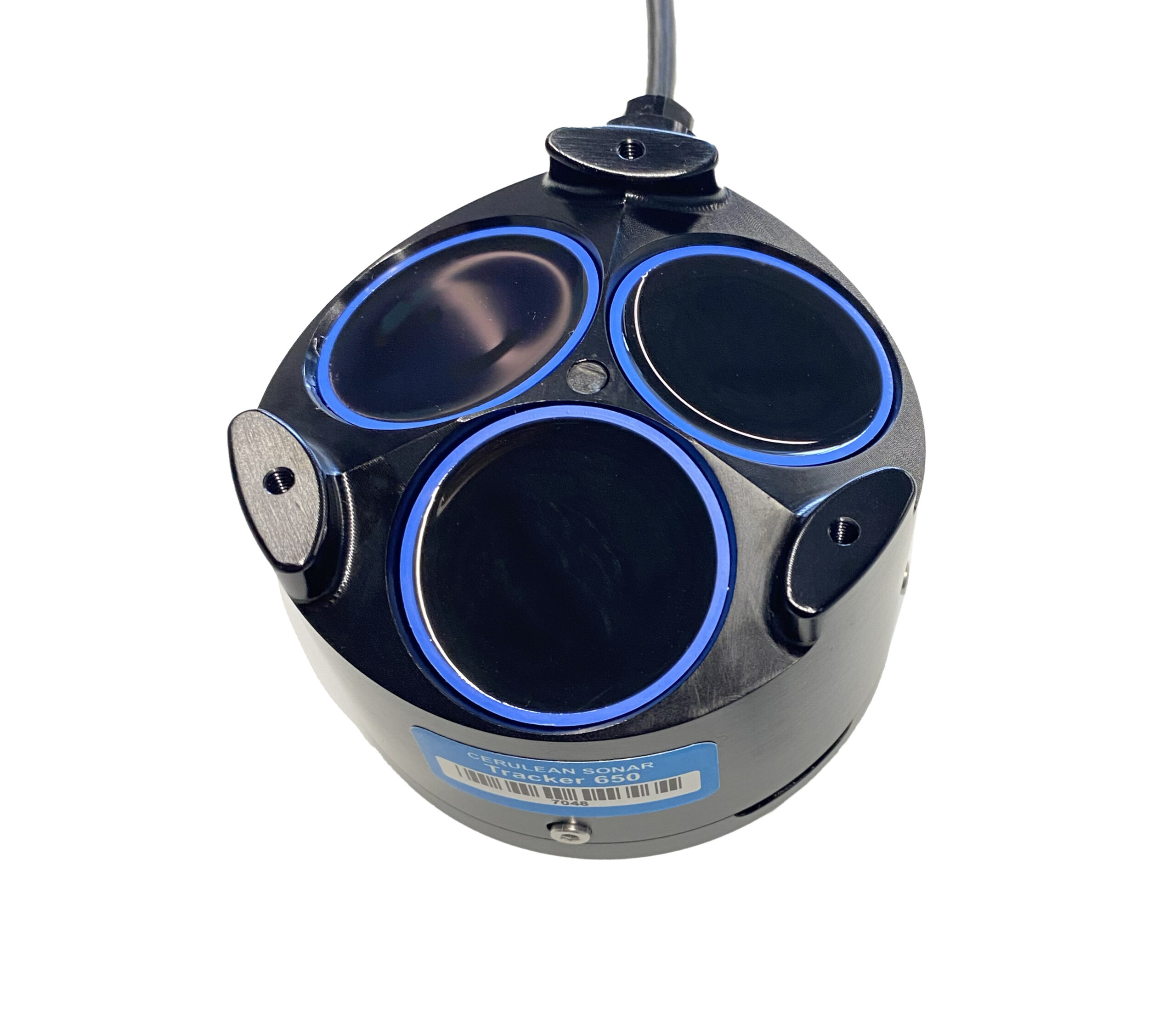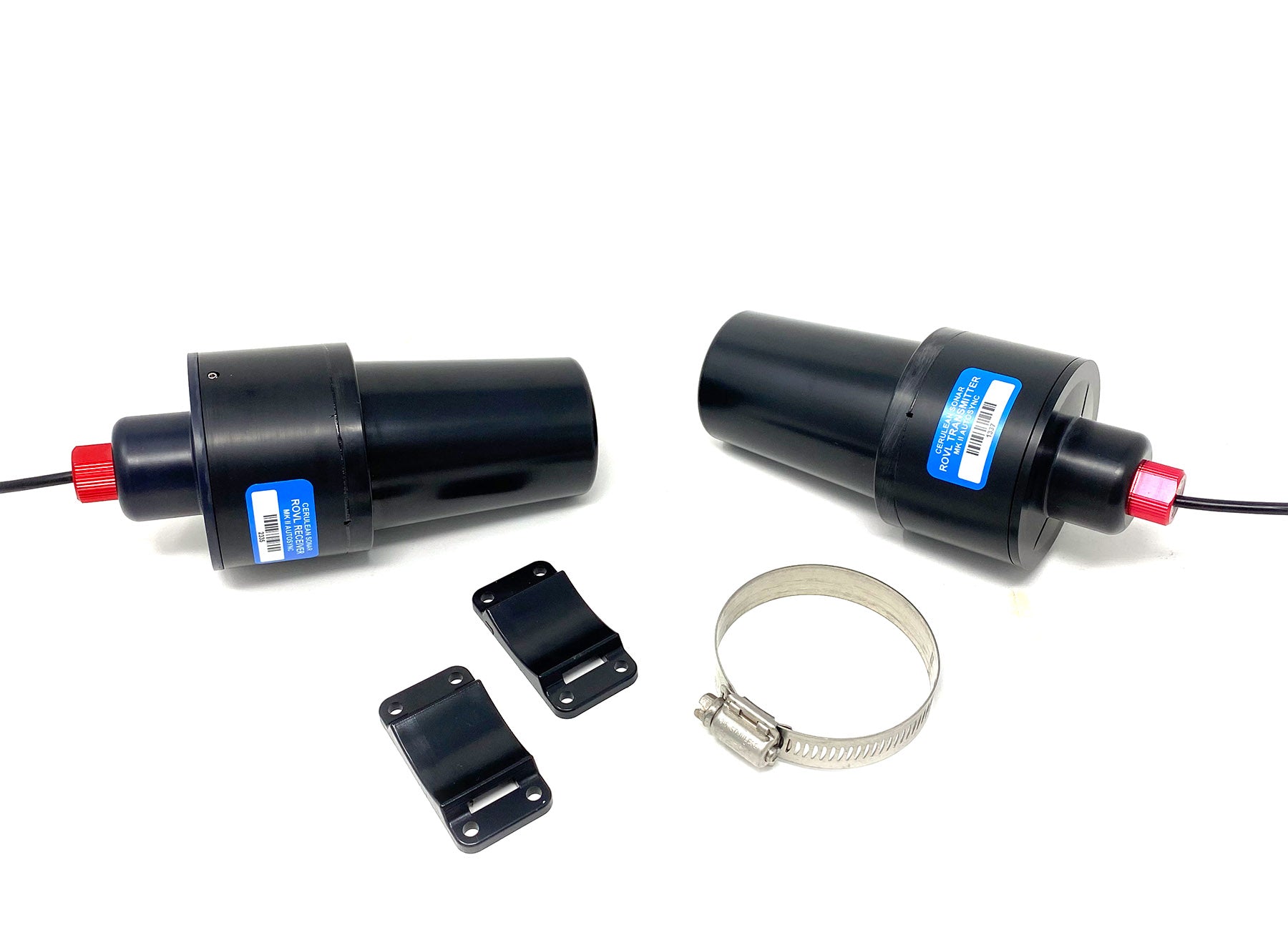Tracker 650
$2,990.00
SKU:
Tracker 650 does only what you need a DVL to do, namely, to provide velocity information so that the vehicle control system can execute its advanced stabilization protocols like position hold and integrated position tracking. Rather than build in extra cost and complexity, Tracker 650 leverages the IMU in the vehicle as the central source of truth about attitude. This also simplifies setup as there is only one IMU to calibrate.
Tracker 650 is perfect for integration by OEMs into their ROV platforms and Cerulean supplies all documentation and engineering support for these scenarios.
Description
The Tracker 650 is optimized for minimum cost, with performance ideally suited for everyday operation of most small ROVs.
Why equip your ROV with a DVL? Here are three great reasons!
Position Hold
Stabilize your underwater vehicle. No more drift due to tether pull and current. Pause your attention to ROV driving and know the vehicle will be right where you left it when you return. Works out of the box with BlueOS or any ArduSub/MAVLinkK2REST vehicle. We are ready to help with any other OEM integrations.
Position Tracking
By default, Tracker 650 sends position delta messages to ArduSub via MAVLink2rest. With appropriate ArduSub setup, and user setting of a global origin, QGroundControl can display your vehicle position on its map. Again, we are ready to support other OEM integrations.
Sonar Mosaic Live
The Tracker 650 is a perfect companion for the Omniscan 450FS and Ping 360 imaging sonars. With Tracker 650 and Cerulean SonarView software you get real-time live sonar mosaic imaging. You will experience situational awareness rivaling multibeam sonars costing $20,000 to $30,000!
Tracker 650 is fully supported by the SonarView application for configuration and monitoring. In addition to Windows, Linux, and macOS versions, SonarView can run on any modern browser when served directly from SonarLink. SonarLink is a node.js program that can be customized for OEM applications (BlueOS extension version of SonarLink is available now).
What Comes in the Box
Tracker-650 with Ethernet + Power Wiring Cable
Blue Robotics RJ45 to JST GH Adapter
Specifications
| Maximum Depth Rating | 300m |
|---|---|
| Device Diameter | 108mm |
| Weight in Air | 550g |
| Weight in Water | 135g |
| Maximum Operating Height (above target plane)* | 25-50m |
| Minimum Operating Height** | 50cm |
| Maximum Operating Speed*** | 5kts |
| Number of velocity sensors | 3 |
| Sensor down angle from horizontal | 70° |
| Angular Operating Envelope, Degrees off vertical | 0 to 20° |
| Ping Frequency | 675kHz |
| Ping Repetition Rate | 5 -20Hz |
| Supply Voltage | 10V to 30V DC |
| Typical Power (averaged over 1 second) | 2.75 watts |
| V-in Current, Peak (largest current spike during operation irrespective of voltage) | 0.5amp |
| Ethernet Support**** | 10/100Mbps |
| Serial Comms Voltage Levels**** | 3.3V TTL or 5V TTL, auto sense |
| Serial Parameters, Default**** | 115200,8,N,1 |
* Achieved maximum height is dependent on several variables, including tilt of the sensor head, flatness of the target plane, hardness of the target plane, vegetation cover on the target plane, and salinity. On a hard-bottom body of water such as Minnesota's Lake Superior, we regularly achieve 50 meters. On a muck-bottom lake such as Minnesota's Lake Minnetonka, we sometimes struggle to get 30 meters.
** Assuming the sensor head is oriented parallel to the target surface.
*** Maximum speed may vary with height above target plane.
**** The recommended interface is Ethernet. Serial interface is possible with a user-supplied custom cable. Some features, such as MAVlink REST server communication, are lost when using serial.



